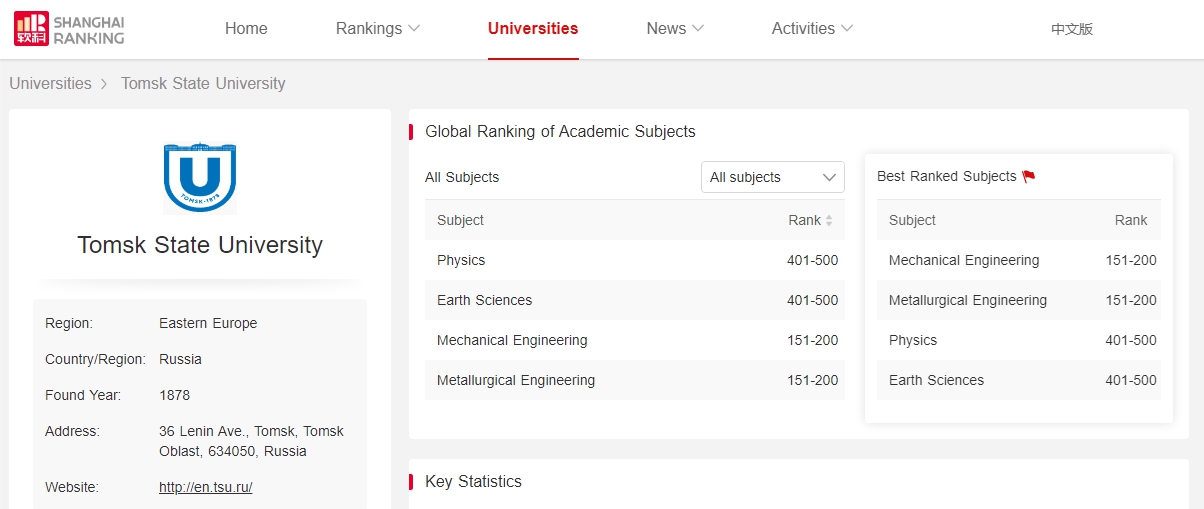The results of the Shanghai Global Ranking of Academic Subjects (GRAS) 2023 show that Tomsk State University is the leader among Russian universities in two subject areas: mechanical engineering and earth sciences. TSU reached the top 200 in the world in mechanical engineering and the top 401-500 in earth sciences, and was the only university from Russia to do so.
TSU is represented in the GRAS world ranking in two more subject areas: metallurgical engineering (top 151-200 in the world and top 3-5 in Russia) and physics (top 401-500 in the world and top 7 in Russia).
Alexander Vorozhtsov, TSU Vice-Rector for Research and Innovation, notes that Tomsk State University Is recognized in the world in metallurgical engineering and mechanical engineering. Since 2022 TSU has been participating in the ExoMet project, which includes universities from 12 countries under the support of the European Space Agency. The main area of collaboration is the creation of new materials for space research, aircraft, and mechanical engineering.

The high ranking in Earth Sciences demonstrates the authority of Tomsk State University in the field of climate change, geology, and volcanism. In this field, TSU fruitfully collaborates with world-leading scientists and continues research supported by mega-grants.
The ranking of Tomsk State University in the top 401-500 in physics is largely the result of the active long-term participation of TSU scientists in world-class projects, such as the ATLAS, TOTEM, and CMS experiments at the Large Hadron Collider at CERN.
Overall, Russian universities entered 35 subject rankings, and are represented in the top 100 in five of them.
The GRAS has been published since 2009 and is compiled by Shanghai Ranking Consultancy. The GRAS-2023 ranking covers 55 subject areas: natural sciences, medical sciences, social sciences, engineering, and life sciences. Over 5000 universities from 104 countries were evaluated, and only 1900 universities were included in the ranking. They were ranked according to scientific achievements: number of staff with prestigious international awards, number of scientific publications in the most influential journals (Q1), quality of research, impact on research, and international collaboration.
Photo: shanghairanking.com